Why study this course with LJMU?
- Excellent student support from academic tutors and student mentors
- Design-led engineering curriculum emphasis, with design projects supplied by industrial partners
- Well-equipped laboratories and workshops with state-of-the-art software and excellent technical support
- To be Accredited by the Institution of Engineering and Technology
- Regular contributions from professional engineers and industrial visits
- Our thriving Student Autosport Society competes successfully in the Formula Student competition and electrical engineering students play a key role in developing the control systems that are crucial to the team's success
About your course
Completing the BEng (Hons) Electrical and Electronic Engineering at Liverpool John Moores University will enable you to graduate with a degree-level qualification plus advanced level skills and experience that will boost your career prospects and future earning potential.
Electrical and electronic engineers are also involved in the ongoing development and production of a diverse range of products, and so companies supplying anything from bread to jet engines, from mobile phones to banking services will need their skills.
Level 4 of this BEng (Hons) course covers core engineering principles and technologies such as mathematics, electrical engineering, electronics and instrumentation, microprocessors and programming. You will also spend time completing structured design projects, which will help develop your engineering and management skills. In the second year there is greater emphasis on the application of the core principles through design.
Electronics and microprocessors are taught in the context of designing and controlling engineering systems and the mathematics course provides the essential skills to enable you to design control strategies, and supports the more mathematical modules of the programme.
During Design Week, you will undertake a project that is less structured allowing you more freedom to design your own solutions to problems. This is supported by a course in commercial project development, which will teach you some of the key skills needed to plan and manage a project.
The third year of the programme covers the core themes of electronics, electrical power and management and you will undertake a major individual project with an academic supervisor.
Course modules
What you will study on this degree
Further guidance on modules
Modules are designated core or optional in accordance with professional body requirements, as applicable, and LJMU’s Academic Framework Regulations. Whilst you are required to study core modules, optional modules provide you with an element of choice. Their availability may vary and will be subject to meeting minimum student numbers.
Where changes to modules are necessary these will be communicated as appropriate.
Core modules
Engineering Mathematics 1a
10 credits
10 credits
Engineering Mathematics 1b
10 credits
10 credits
Digital Electronics
20 credits
20 credits
Software Development for Embedded Systems
20 credits
20 credits
Engineering Circuit Analysis
20 credits
20 credits
Analogue Electronics
20 credits
20 credits
Professional Practice and the Environment
20 credits
20 credits
Core modules
Embedded Systems Programming and Applications in the Environment
20 credits
20 credits
Electric machines, power systems and clean energy
20 credits
20 credits
Linear Electronics Design and the Environment
10 credits
10 credits
Instrumentation and Control Engineering
20 credits
20 credits
Professional Practice Integrative Project
20 credits
20 credits
Local Communications Systems and Applications
20 credits
20 credits
Advanced Mathematics
10 credits
10 credits
Core modules
Signals and Systems with Real World Applications
10 credits
10 credits
Power Electronics and Energy Efficient Drives
20 credits
20 credits
Engineering Project
40 credits
40 credits
Engineering Management
10 credits
10 credits
Optional Modules
Automation and IoT
20 credits
20 credits
Further Electronic Design
20 credits
20 credits
Process Control and Applications
20 credits
20 credits
Professional accreditation/links
Accredited by the Institution of Engineering and Technology (IET) on behalf of the Engineering Council for the purposes of fully meeting the academic requirement for registration as an Incorporated Engineer and partly meeting the academic requirement for registration as a Chartered Engineer
LJMU's policy is to ensure that MEng and BEng engineering degrees are accredited by the relevant UK professional engineering institution and provide the educational base for graduates to gain Chartered Engineer (CEng) status.
Accredited MEng degrees enable graduates to gain CEng status without further study, while accredited BEng degrees will require a further period of study after graduation.
If you have demonstrated consistently strong performance by the end of Level 5, you may be offered the opportunity to transfer to the MEng programme.
Gaining professional status will be of considerable benefit to you in your future career especially if you join a multinational company and/or need to have your qualification recognised overseas.
Your Learning Experience
Excellent facilities and learning resources
We adopt an active blended learning approach, meaning you will experience a combination of face-to-face and online learning during your time at LJMU. This enables you to experience a rich and diverse learning experience and engage fully with your studies. Our approach ensures that you can easily access support from your personal tutor, either by meeting them on-campus or via a video call to suit your needs.
Teaching is via a combination of lectures supported by small-group tutorials, plus seminars, design and building projects, online activities and laboratory work.
During your first two years, formal teaching will account for around 18-20 hours per week, and you will be expected to spend approximately 30-32 hours in private study. As you progress through the course, independent study becomes more important and so the proportion of private study time increases to around 39 hours per week.
Work-related Learning
This course offers an invaluable opportunity to undertake an industrial placement after your second year. This experience cannot be underestimated as it will give you a chance to put into practice what you have learnt in the first two years, enhance your skills and provide a taste of what its really like to work in the industry. It will also give you a head start when you come to negotiate your way around the competitive job market.
Dedicated personal tutor, plus study skills support
Embarking on any degree course can be daunting, and so to help you get to know your tutors and fellow students, we organise a three-day field trip to the Blue Peris Mountain Centre in Wales in your first year. Undoubtedly you will need academic and personal support at times during your course, and for this reason you will be allocated a personal tutor with whom you can discuss course-related issues, work on a personal development plan and set your own targets.
Assessment varies depending on the modules you choose, but will usually include a combination of exams and coursework.
Assessment is usually via a combination of exams and coursework, and sometimes by a portfolio of work, depending on the subject. A final year project gives you the chance to work independently and contributes considerably to your final mark. Your tutors will give prompt and constructive feedback via Canvas (our virtual learning environment), face-to-face or in writing. This will help you to identify your strengths as well as the areas where you may need to put in more work.
Where you will study
What you can expect from your School
This programme is delivered in the Byrom Street complex of LJMUs City Campus. Here you'll find high quality lecture theatres, meeting and seminar rooms plus social spaces and a large cafe. The Avril Robarts Library is just minutes away on Tithebarn Street.
Course tutors


The course has exceeded my expectations. I can theoretically and practically see, understand and better solve problems related to my course. This is all due to the availability of resources and the patient approach of my lecturers.
Tuition fees and funding
- Home part-time per year:
- £6,935
The University reserves the right to increase tuition fees in accordance with any changes to the maximum allowable fees set by the UK Parliament. In the event of such a change, any fee increase will be subject to a maximum cap of 10% of the total course cost as originally stated at the time of your offer.
The fees quoted above cover registration, tuition, supervision, assessment and examinations as well as:
- library membership with access to printed, multimedia and digital resources
- access to programme-appropriate software
- library and student IT support
- free on-campus wifi via eduroam
Additional costs
Although not all of the following are compulsory/relevant, you should keep in mind the costs of:
- accommodation and living expenditure
- books (should you wish to have your own copies)
- printing, photocopying and stationery
- PC/laptop (should you prefer to purchase your own for independent study and online learning activities)
- mobile phone/tablet (to access online services)
- field trips (travel and activity costs)
- placements (travel expenses and living costs)
- student visas (international students only)
- study abroad opportunities (travel costs, accommodation, visas and immunisations)
- academic conferences (travel costs)
- professional-body membership
- graduation (gown hire etc)
Funding
There are many ways to fund study for home and international students. From loans to International Scholarships and subject-specific funding, you'll find all of the information you need on our specialist funding pages.
Entry requirements
Please choose your qualifications below to view requirements
Grades/points required from qualifications:
Work out how many UCAS points your qualifications are worth by visiting the UCAS Tariff Calculator.
Qualification requirements
A levels
Applicants should have or expect to obtain a total of 112 UCAS points. At A2-level, applicants should expect to obtain at least two awards and gain at least 64 points from A Level Mathematics and one of the following (Physics, Chemistry, Computing, Further Maths, Electronics or Engineering)
BTECs
BTEC National Award Applicants should have or expect to obtain a grade M in a BTEC National Award in a subject relevant to the intended degree, such as Engineering, ICT Systems Support or Applied Physics, including a Merit in a mathematics unit or relevant Free-Standing Mathematics Qualifications, together with other relevant qualifications to obtain a total of 112 UCAS points BTEC National Certificate Applicants should have or expect to obtain a BTEC National Certificate with an overall grade of DD in a subject (including optional units relevant to the intended degree) such as Engineering, ICT Systems Support or Laboratory and Industrial Science. Alternatively, applicants may achieve an overall grade of MM supplemented with relevant qualifications to achieve a total of 112 UCAS points. The BTEC National Certificate should include a merit in a further mathematics unit or be supplemented with appropriate Free-Standing Mathematics Qualifications. BTEC National Diploma Applicants should have or expect to obtain a BTEC National Diploma with an overall grade of MMM in a subject (including optional units relevant to the intended degree) such as Engineering, ICT Systems Support or Laboratory and Industrial Science. Alternatively, applicants may achieve an overall grade of MMP supplemented with relevant qualifications to achieve a total of 112 UCAS points. The BTEC National Diploma should include a merit in the further mathematics unit or be supplemented with appropriate Free-Standing Mathematics Qualifications.
Alternative qualifications considered
Applicants should have five GCSE (or equivalent) passes of at least grade C, or grade 4, including Mathematics and English (or IELTS 6.0). We welcome applications from highly motivated mature students with relevant experience but without the necessary formal qualifications. All applications will be considered on an individual basis.
International requirements
Other international requirements
Other Applicants offering other awards (e.g. Welsh Baccalaureate, European Baccalaureate, pre-2002 BTEC National Certificate/Diploma, Advanced Extension Awards, pre-curriculum 2000 A-levels etc.) or combinations of unit awards may also be accepted.
Please Note: All international qualifications are subject to a qualification equivalency check.
How to apply
Securing your place at LJMU
To apply for this programme, you are required to complete an LJMU online application. You will need to provide details of previous qualifications and a personal statement outlining why you wish to study this programme.
We are looking for students who are keen to learn new skills and develop those they already possess. We want students with the ability to: be creative with ideas and concepts, moderate their creativity with logic, be enthusiastic and thirsty for knowledge, communicate effectively and confidently and understand and adapt to a wide range of issues connected with the subject.
It is also important that students are able to manage time and tasks effectively as an individual and as part of a team, use appropriate sources to find and organise information and select and critically evaluate information in order to analyse problems.
If you would like to develop these skills further, have a strong interest in this subject area and want to work effectively within it, then this is the course for you!
Your university life
From accommodation and academic support to clubs and societies. Find out what LJMU has to offer.
Related Links
Talk to our students
Connect with a current LJMU student for advice and guidance on university life, courses and more.
See what our students are saying
At LJMU we want you to know you're making the right choice by studying with us. You can see what our students are saying about their experience with us through their reviews on the following websites:
Related Links
News and views
Browse through the latest news and stories from the university

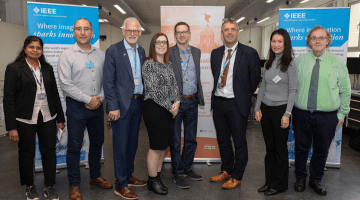
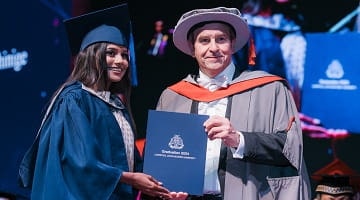
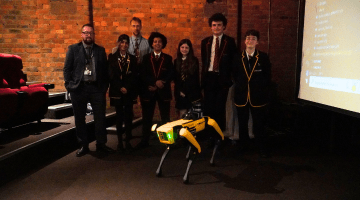
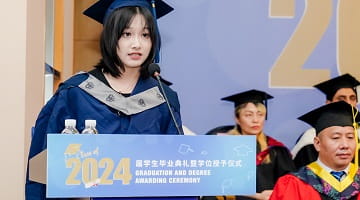

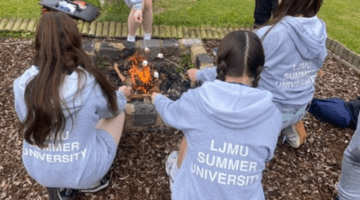


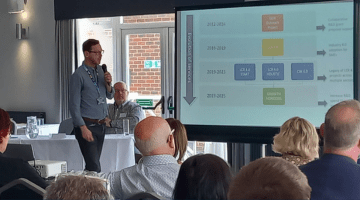
The university reserves the right to withdraw or make alterations to a course and facilities if necessary; this may be because such changes are deemed to be beneficial to students, are minor in nature and unlikely to impact negatively upon students or become necessary due to circumstances beyond the control of the university. Where this does happen, the university operates a policy of consultation, advice and support to all enrolled students affected by the proposed change to their course or module.
Further information on the terms and conditions of any offer made, our admissions policy and the complaints and appeals process.



















